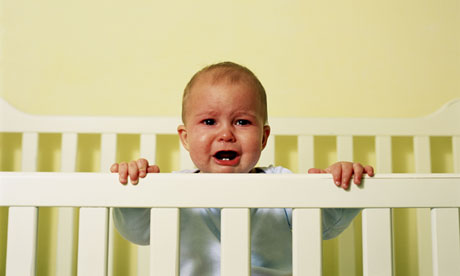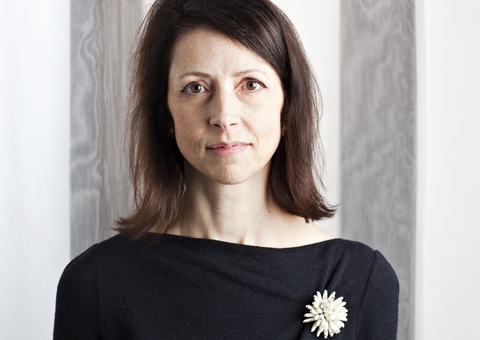As any parents of a young child who is a problem sleeper will confirm, permanent tiredness and constant irritability can put a huge strain on your relationship. In fact, according to a survey, lack of sleep is a big factor in divorce and separation for a third of couples.
Ahead of a new series on the subject, a poll carried out for Channel 4 suggests the average parent surveyed got fewer than six hours of sleep a night. It also found that three in 10 couples who had split up said sleep deprivation since having their child was a factor in the breakup. Nearly 45% said they had dozed off in a place they shouldn't have or was unsafe, with one in 20 admitting to falling asleep at the wheel of their car.
Children waking throughout the night, as well as the struggle to get children off to bed at a respectable hour, were equally important issues for parents. Nearly half of the 2,000 people questioned said getting their child to sleep at a consistent time was a nightly battle.
Around 11% admitted to pretending to be asleep in the night so that their partner was forced to deal with a crying child, while 11% said they had shut the door and 9% said they had turned up the TV to block out the noise of a sobbing child. A fifth of parents blamed the fact that their child had a television in their room for their failure to fall asleep.
But psychologist Tanya Byron, who is among a panel of experts taking part in the series, Bedtime Live, which will allow people to call in via video to the show and ask for help, said it wasn't about blaming parents – rather that family downtime was being eroded by the demands of work and the attraction of technologies, and that sleep was being lost as a result.
"From a clinical perspective, a lot of those I see in my own clinics, predominantly children, have underlying issues with not getting enough sleep, even if that isn't the problem they are presenting with. Behavioural difficulties, family issues, learning and concentration issues: there is a significant number of these common problems which have poor sleep at the heart of it.
"Kids get a bad press but actually we are not helping them with this whole new breed of 'friend-parents'. I see people whose children have chronic sleep problems and they'll say things like their children get really upset if they try to send them to bed. Well, I promise you, they won't hate you in the morning when they've had a proper rest. Our generation struggles with discipline much more than any other but the lack of boundaries will only cause more and more difficulties." Sleep deprivation in adults was also a worry, she said, pointing to tests done on the sleep-deprived mothers. "Those without sleep were just as dangerous as those who had been drinking. One woman drove 100 metres with her eyes closed."
Byron said the key to establishing an age-appropriate bedtime was to look at what time children were having to get up and work backwards. NHS guidelines state that youngsters aged between three and five need 11 hours of sleep, 10-year-olds need 10 hours, and 14-year-olds nine hours. Sleep needs remain just as vital for teenagers as for younger children, and scientists have been moving towards the view that they should start their day a little later than younger children to allow their brains to fully wake up. But social pressures and the lure of tablets, phones and Facebook keep many up way past their recommended bedtimes.
Byron said: "I have a teenage daughter and what I notice is the way life is marketed to them: high-energy drinks, the nature of technology that's global and without time zones, 24-hour life. Sleep has slipped right off the agenda. They think if they sleep they will miss something. The boys are gaming late into the night and the girls are leaving their phones' alerts on so it wakes them up if there's anything going on, so the quality of the sleep is as bad as the quantity."
Byron stressed that no one was trying to put the blame on parents but said that there had been a cultural shift that desperately needed tackling: "What we have to remember is that fundamentally we are beings who run on circadian rhythms and we are just putting our brains under constant stress if we can't get our sleep."











